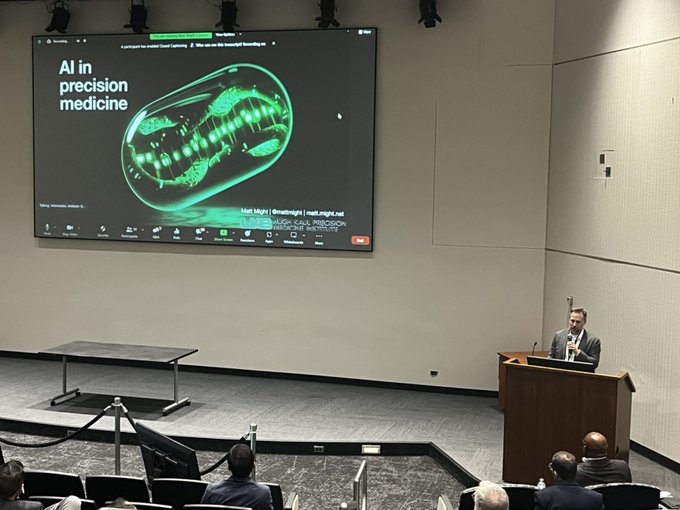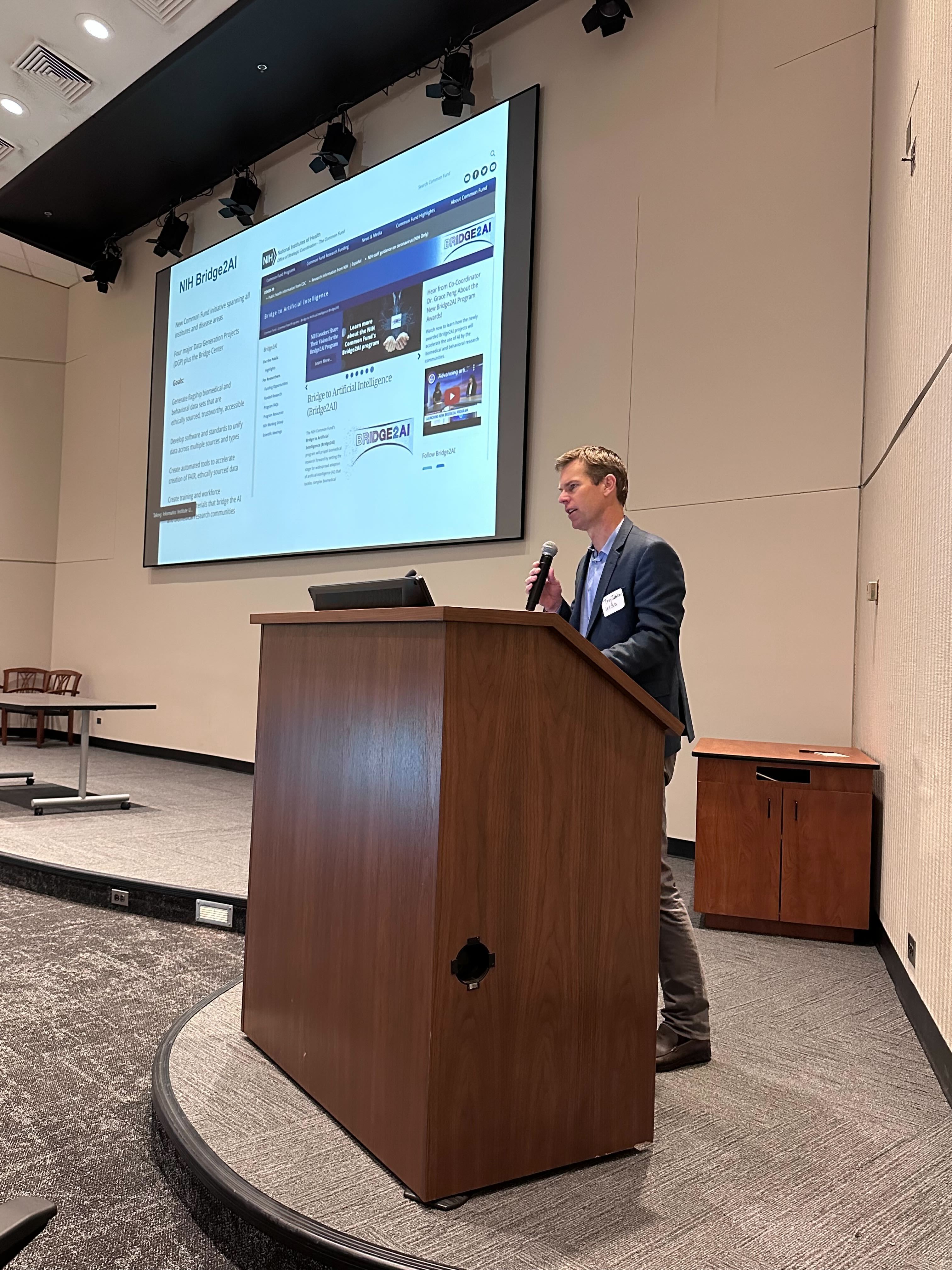The Department of Biomedical Informatics and Data Science, along with the Center for Clinical and Translational Sciences (CCTS), hosted the 7th Annual Translational and Transformative Informatics Symposium on April 21, with the theme of “Artificial Intelligence (AI) in Medicine and Healthcare”.
ATTIS 2023 attracted more than 250 registered attendees from 30 universities and other organizations and was held at the Margaret Cameron Spain Auditorium of UAB and online over Zoom.
Speakers of ATTIS 2023 with various presentations focusing on critical aspects of artificial intelligence in medicine, including the application of learning models predicting responses to chemotherapy in breast cancer patients, the integration of AI within antiviral drug discovery, precision medicine’s implementation of AI to its research, the role of AI in medical imaging as it relates to radiogenomics, and the analysis of sequencing data via autoencoder.
ATTIS 2023 Program Chair Jake Chen, Ph.D., UAB Professor of Genetics, Computer Science, and Biomedical Engineering, opened the conference by stating that there has been accelerated adoption of deep learning, large language models, and general AI methodology in biomedical sciences, from pathology imaging to genomics. The keynote speaker was Trey Ideker, Ph.D., Professor of Medicine, Bioengineering, and Computer Science at the University of California in San Diego, whose presentation was entitled “Building a Cell Model for Cancer.”
“Recent events make it clear that AI in healthcare is not a fad or blip on the radar,” Dr. Ideker commented. “Its importance for healthcare cannot be overstated.”
“Our symposium provided the opportunity to learn about different flavors of big data and AI applications in biomedical research and medicine, from virtual doctors that read radiology images to smart therapeutics that tailor treatment plans to patients,” Dr. Chen commented.
“Whether they were principal investigators, faculty members, or graduate students, people shared this incredible learning experience about the impact of artificial intelligence (AI) in medicine.”
During the tutorial session, John Osborne, Ph.D., Associate Professor of Medicine, presented “Large Language Models in AI: What’s New About ChatGPT?”, which focused on one of the most well-known language models in artificial intelligence.
“An accessible chat-style interface combined with astounding results has allowed ChatGPT to make a powerful cultural impact since its release. Larger language models trained with reinforcement learning with human feedback are already affecting human life including education, science, business, and artistic endeavors,”
"ChatGPT's accessible interface and impressive outcomes have revolutionized culture, impacting education, science, business, and art," Dr. Osborne stated. "Healthcare will not remain untouched, as these models can synthesize and summarize information, and will have application for drug discovery and repurposing, chart and systematic reviews, billing and patient communication, to name just a few.” Keynote speaker Trey Ideker, Ph.D., University of California San Diego
Keynote speaker Trey Ideker, Ph.D., University of California San Diego
ATTIS also included a flash-talk session consisting of 10-minute short presentations and a poster session.
The winners of the ATTIS Poster Session were:
- 1st Place – Justin Bridges, Department of Biomedical Engineering, University of Alabama at Birmingham, “Reorganization of Chromatin Structure Promotes Reversion of Cardiac Pathology”
- 2nd Place – Timothy B. Fisher, Department of Biology, Georgia State University, “Machine-Learning Based Models to Predict Metastasis in Triple-Negative Breast Cancer Patients”
- 3rd Place – Santhosh Kumar Karthikeyan, Graduate Biomedical Sciences, University of Alabama at Birmingham, “Mammonc-DB: A Web-Based User-Friendly Tool for Comprehensive Multi-omics Data Analysis in Breast Cancer”
“Given the current state of healthcare, it is more important than ever to have a symposium such as this that allows the open exchange of dialogue and potentially innovative ideas,” said James Cimino, M.D, Chair of the Department of Biomedical Informatics and Data Science.
“Hosting this symposium on our campus (and virtually) gives individuals and organizations outside of UAB the opportunity to see the capabilities of artificial intelligence, as it relates to reducing medical errors, enabling telemedicine, and improving the experiences of patients overall. I am extremely pleased with the implications of this event, and look forward to what is in store for the future.”